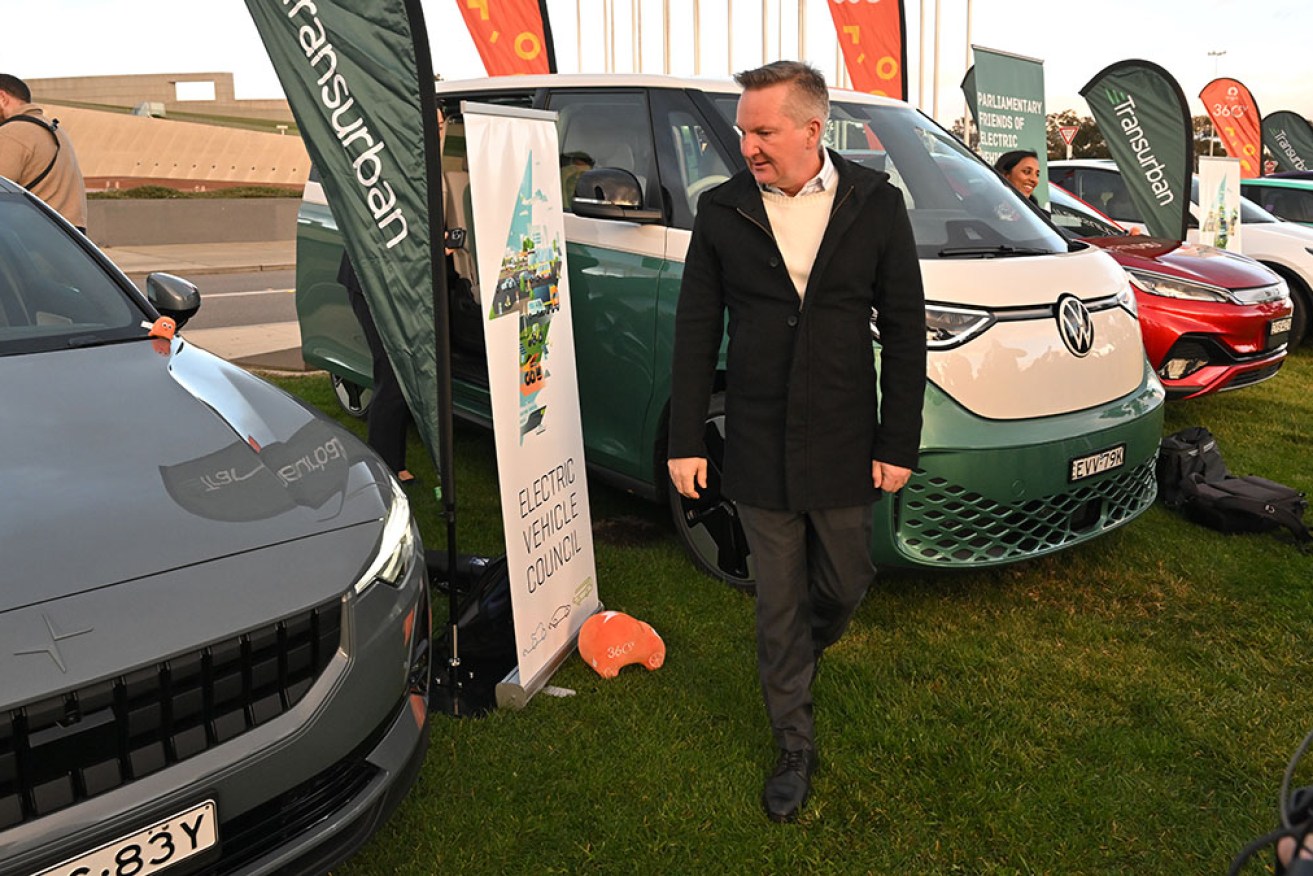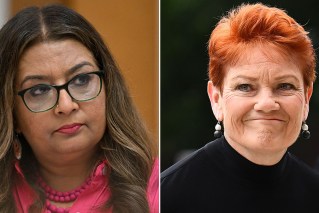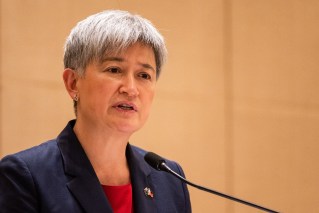Shift to EVs gets into gear with push for fuel-efficiency ratings

Energy and Climate Change Minister Chris Bowen is prepared to fine-tune the emissions policy. Photo: AAP
Proposed laws that would encourage automakers to bring more electric vehicles to Australia have received “overwhelming support” from almost 1200 individuals and organisations.
The response was detailed in submissions to the federal government’s fuel-efficiency standard consultation, which were publicly released on Friday.
But difficult negotiations could lie ahead as the government, automotive industry and environmental groups debate what the standard could include and how fast it should make changes.
Federal Energy Minister Chris Bowen and Transport Minister Catherine King launched a six-week consultation on the new laws in April, following the release of the National Electric Vehicle Strategy.
Australia lags behind
A fuel-efficiency standard would set a pollution cap across manufacturers’ fleets to encourage them to bring more low-emission vehicles into the country.
Australia is one of few developing nations, alongside Russia and Turkey, that has yet to introduce a standard.
The consultation on the law attracted almost 1200 responses, most of which, Mr Bowen said, supported the change.
“The response to our FES consultation reinforces overwhelming support for the government’s position: Australia needs fuel-efficiency standards that make us competitive with other parts of the world for cleaner, cheaper-to-run cars,” he said.
Ms King said a standard could “make a real difference for Australia” and encourage car brands to deliver a bigger range of electric vehicles.
The standard was welcomed by groups including the Climate Council and ride-share giant Uber, with Australian general manager Dom Taylor saying the country was at risk of missing out “environmentally and economically” if it did not catch up to the rest of the world in low-emissions transport.
But debate has begun over what will be included in Australia’s fuel-efficiency standard, how high its pollution caps will be set and how quickly they will they will cut emissions.
Greenpeace Australia Pacific campaigner Joe Rafalowicz said the government should use the wide support to set ambitious vehicle pollution limits and ignore calls for loopholes to count low-emission vehicles more than once or to receive “credits” for cutting emissions in places other than a car’s tailpipe.
No ‘time for dodgy accounting’
“We urge the federal government not to be distracted or delayed by any push from the petrol lobbyists to include so-called ‘multiplier credits’ in a fuel-efficiency scheme,” he said.
“In a climate crisis, we don’t have any time for dodgy accounting tricks or double-dipping.”
Federal Chamber of Automotive Industries chief executive Tony Weber said manufacturers supported the introduction of a standard but one that was achievable, flexible and considered the speed at which cars were released.
“The exact form of a fuel-efficiency standard needs to consider the model cycle time-frames to bring more fuel-efficient vehicles into Australia and the level of financial and non-financial support from the government,” he said.
“Across the world, this partnership of industry and government has been crucial to the development of low-emission vehicles.”
A draft standard is expected to be released by the end of the year.
-AAP








